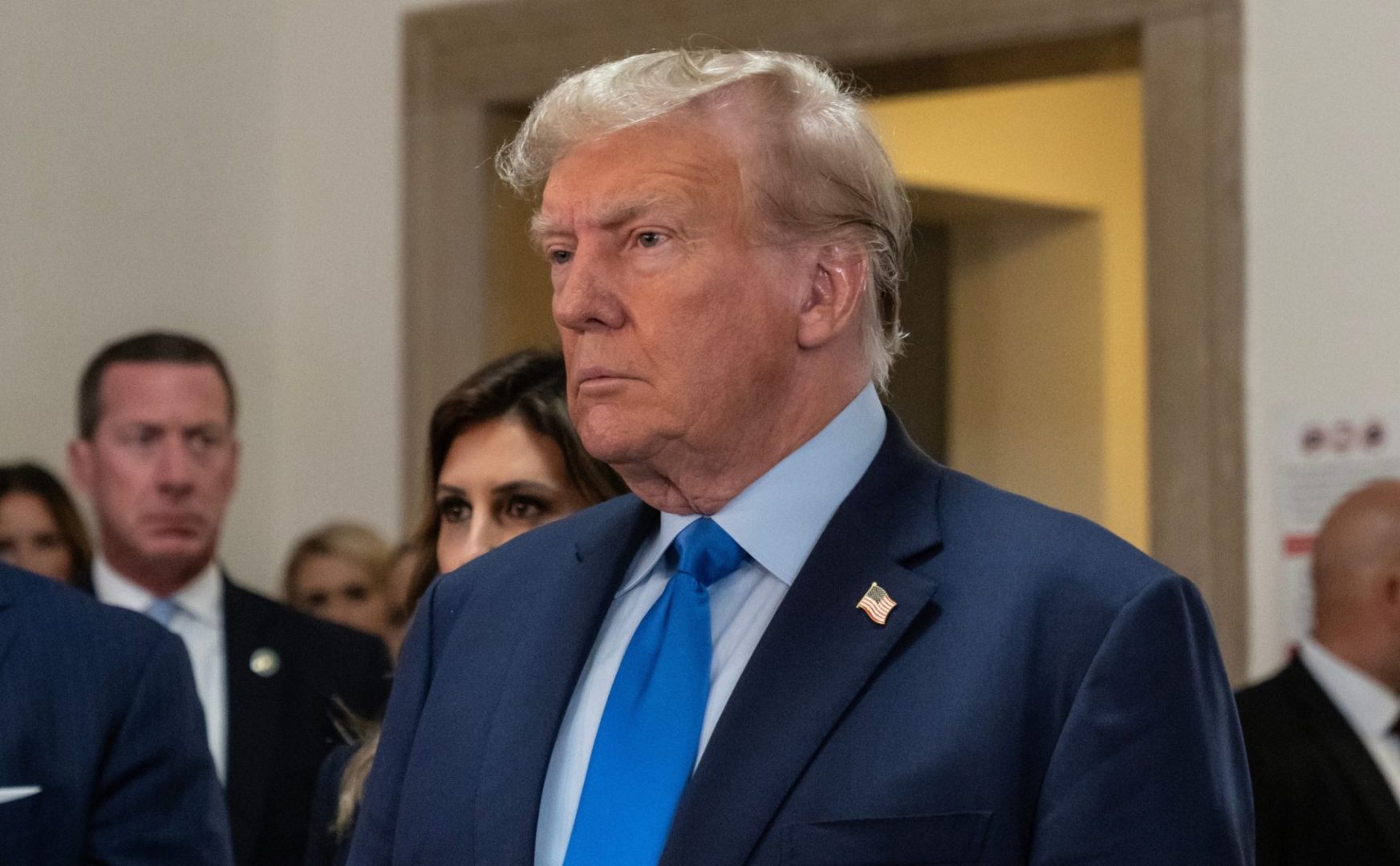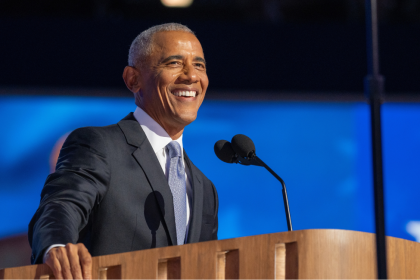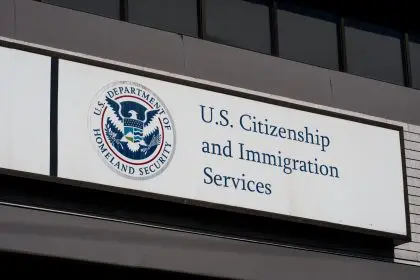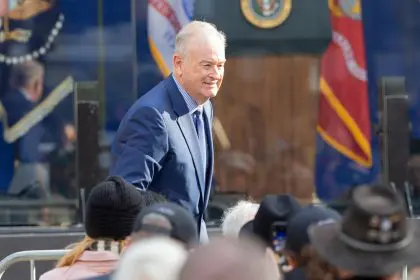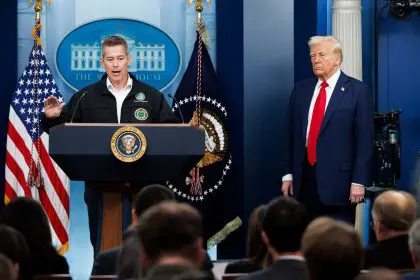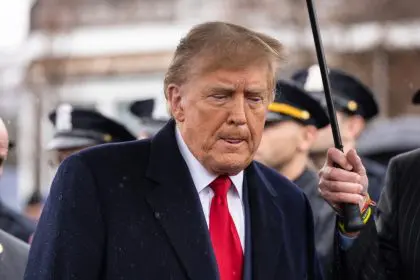President Donald Trump’s ambitious immigration overhaul has taken an unexpected turn, with his administration actively pressuring African nations to accept deportees who aren’t even their own citizens. The controversial strategy has created a diplomatic firestorm across the continent, with several countries pushing back against what they view as an unfair burden-sharing arrangement.
The plan represents a dramatic shift in how the United States handles deportations, moving beyond traditional country-of-origin returns to a complex web of third-country agreements. This approach has already sparked heated exchanges between Washington and various African governments, with some nations refusing to cooperate while others reluctantly consider the proposals.
Nigeria stands firm against pressure
Nigeria has emerged as the most vocal opponent of Trump‘s deportation strategy, with Foreign Minister Yusuf Tuggar publicly declaring that his country will not serve as a dumping ground for Venezuelan prisoners deported from the United States. The West African nation, home to 230 million people, has found itself at the center of a diplomatic dispute that extends far beyond immigration policy.
Tuggar revealed that the US government has been mounting considerable pressure on African countries to accept 300 Venezuelan deportees, with some coming directly from American prisons. The minister’s strong stance reflects growing frustration among African leaders who view the policy as an attempt to shift America’s immigration challenges onto nations already struggling with their own domestic issues.
The diplomatic tension has escalated into concrete actions, with the US Department of State implementing what they call a “global reciprocity realignment.” Under this new policy, nearly all non-immigrant and non-diplomatic visas issued to citizens of Nigeria, Ghana, Cameroon, and Ethiopia will now be single-entry and valid for only three months, a dramatic reduction from previous arrangements.
5 African leaders face direct requests
Trump’s approach became even more direct when he personally asked the presidents of 5 African nations during their official visits to Washington to accept illegal migrants from other countries. The leaders of Liberia, Senegal, Guinea-Bissau, Mauritania, and Gabon found themselves in the unprecedented position of being asked to take responsibility for migrants who had never set foot in their countries.
This face-to-face diplomatic pressure represents a significant escalation in the administration’s tactics, moving beyond traditional diplomatic channels to direct presidential appeals. The meetings highlight how central this policy has become to Trump’s broader immigration strategy, with nearly 60 countries being asked or planned to be asked to accept non-citizen deportees.
Legal foundation strengthens deportation powers
The Supreme Court has provided crucial legal backing for Trump’s third-country deportation strategy, clearing the way for the administration to resume sending migrants to countries other than their homelands. In a 6-3 decision, the justices reversed a lower court order that required the government to give migrants a “meaningful opportunity” to explain the risks they might face if deported to third countries.
The ruling involved eight migrants from Myanmar, South Sudan, Cuba, Mexico, Laos, and Vietnam who were deported to South Sudan, despite only one being South Sudanese. The Trump administration described these individuals as representing “the worst of the worst,” though the legal precedent now applies broadly to third-country deportations.
US Solicitor General John Sauer argued that the government’s inability to deport violent criminal migrants to their homelands, due to those countries’ refusal to accept them, forces dangerous individuals to remain in the United States, where they continue “victimizing law-abiding Americans.”
Countries respond with mixed reactions
The response from targeted nations has varied dramatically, creating a patchwork of cooperation and resistance across Africa and Latin America. South Sudan has already accepted eight convicted deportees from the US, though only one was actually South Sudanese, in what observers see as an attempt to ease punitive travel restrictions imposed after initial resistance.
Rwanda is actively discussing a potential agreement with the Trump administration to accept deportees, including Africans and other non-Rwandan nationals. The negotiations involve complex discussions about financial compensation and logistics, with decisions still pending on crucial details of the arrangement.
Costa Rica has emerged as a willing partner, announcing an agreement to receive 200 illegal immigrants from Central Asia and India, including more than 80 children. The Central American nation has established a Temporary Migrant Care Centre to house these deportees, demonstrating how some countries are adapting to accommodate the new policy.
Financial incentives drive agreements
The Trump administration has backed its deportation requests with significant financial incentives, recognizing that many countries need compensation to accept the burden of housing and processing non-citizen deportees. Panama received approximately $14 million from the US government as part of an agreement to accept migrants from India, China, Uzbekistan, Iran, Vietnam, Turkey, Nepal, Pakistan, Afghanistan, and Sri Lanka.
These monetary arrangements represent a new model for international migration management, where wealthy nations essentially pay developing countries to handle their deportation challenges. The financial component has proven crucial in securing cooperation from countries that might otherwise resist such arrangements.
Diplomatic tensions escalate
The policy has created unprecedented diplomatic challenges, with traditional allies finding themselves at odds over immigration issues. The visa restrictions imposed on Nigeria, Ghana, Cameroon, and Ethiopia represent just the beginning of potential consequences for countries that refuse to cooperate with the deportation program.
The situation has transformed routine diplomatic relationships into high-stakes negotiations, where immigration policy intersects with trade, aid, and security cooperation. African nations find themselves weighing the costs of resistance against the benefits of maintaining positive relationships with the United States.
This evolving situation continues to reshape international migration patterns and diplomatic relationships, with long-term implications that extend far beyond the immediate deportation numbers.

